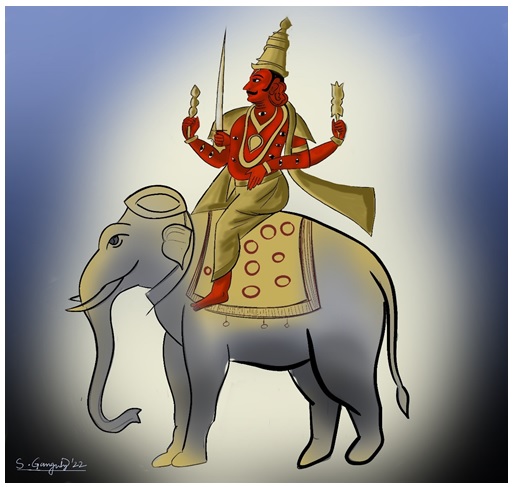The Learnings of OCB and Employees’ Psychology from Indian Mythological Tales - An Empirical Study
DOI:
https://doi.org/10.54741/mjar.3.3.7Keywords:
organizational citizenship behavior, volunteerism, potentials, organization, evocative, applied indian mythologyAbstract
Organizational Citizenship Behavior has been premeditated by various distinguished scholars and managerial connoisseurs for the last few decades. Be it Dennis Organ who disseminated the theory in 1988 or any other well-known academician, the interrogation of how much volunteerism is too much volunteerism always triumphs. The concerned study purposes to afford a lucid view of the various potentials that an employee must possess to underwrite willingly to the organization. The study also furnishes investigated primary data to accept/reject its hypotheses. The research article affords minuscule niceties regarding the central perceptions of OCB. It also aims to retort the various characteristics of emotional interactive personalities in human beings through applied Indian mythology so that an evocative supposition can be accomplished on employee volunteerism.
Downloads
References
Atrizka, D., Lubis, H., Simanjuntak, C. W., & Pratama, I. (2020). Ensuring better affective commitment and organizational citizenship behavior through talent management and psychological contract fulfillment: An empirical study of indonesia pharmaceutical sector. Systematic Reviews in Pharmacy, 11(1).
Business NLP Academy. n.d. 5 common types of organizational citizenship behavior. Available at: https://www.businessnlpacademy.co.uk/blog/view/5_common_types_of_organizational_citizenship_behavior/. Accessed on: 10 July 2022.
Grego-Planer, D. (2019). The relationship between organizational commitment and organizational citizenship behaviors in the public and private sectors. Sustainability, 11(22), 6395.
Khan, M. A., Ismail, F. B., Hussain, A., & Alghazali, B. (2020). The interplay of leadership styles, innovative work behavior, organizational culture, and organizational citizenship behavior. Sage Open, 10(1), 2158244019898264.
Krishnan, S. (2012). Indra and the ants. [online] Stories from hindu mythology. Available at: http://hindumythologyforgennext.blogspot.com/2012/02/indra-and-ants.html?m=1. [Accessed on: 11 July 2022.
Ocampo, L., Acedillo, V., Bacunador, A. M., Balo, C. C., Lagdameo, Y. J., & Tupa, N. S. (2018). A historical review of the development of organizational citizenship behavior (OCB) and its implications for the twenty-first century. Personnel Review.
Pattanaik, D. (2019). Validating human existence through the Indian scheme of things. [online] Devdutt Pattanaik. Available at: https://devdutt.com/articles/validating-human-existence-through-the-indian-scheme-of-things/. Accessed on: 11 July 2022.
Verlinden, N., n.d. Organizational citizenship behavior: Benefits and 3 best practices. [online] Academy to innovate HR. Available at: https://www.aihr.com/blog/organizational-citizenship-behavior/. Accessed on: 10 July 2022.
Vyasa Online. n.d. Indra. Available at: https://www.vyasaonline.com/encyclopedia/indra/ Accessed on: 11 July 2022.

Downloads
Published
How to Cite
Issue
Section
License
Copyright (c) 2023 Saptarsi Ganguly, Dr. Amit Majumder

This work is licensed under a Creative Commons Attribution 4.0 International License.
Research Articles in 'Management Journal for Advanced Research' are Open Access articles published under the Creative Commons CC BY License Creative Commons Attribution 4.0 International License http://creativecommons.org/licenses/by/4.0/. This license allows you to share – copy and redistribute the material in any medium or format. Adapt – remix, transform, and build upon the material for any purpose, even commercially.









